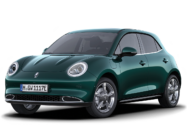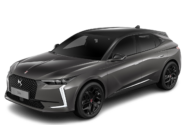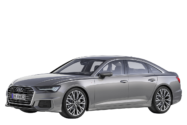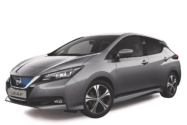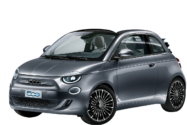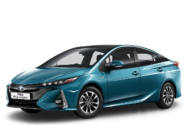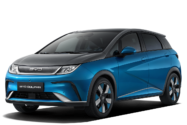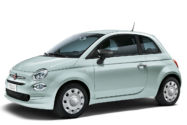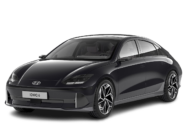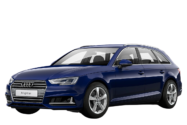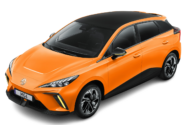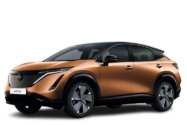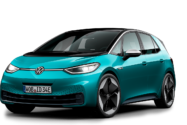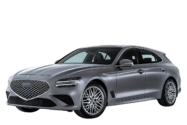15th June 2023
Green NCAP: Carmakers hot up on Green Goals
Today, Green NCAP releases results that illustrate the progress of electric vehicle technology, as well as the emissions control of petrol and diesel cars that still account for a substantial part of the present-day fleet. The cars tested are Volkswagen ID.5, BMW 2 Series Coupé, Dacia Sandero Stepway, Mercedes-Benz C-Class, and the Ford Tourneo Connect. Results delivered today range from five stars awarded for the Volkswagen ID.5 to a two-star result for the Ford Tourneo Connect.
The first of the cars tested in this month’s release is the Volkswagen ID.5 Pro Performance, which offers 150 kW and is equipped with a 77-kWh electric battery. Even though the car weighs more than 2,100 kg due to this massive battery, the efficiency it demonstrates is impressive. The recorded consumption values are among the lowest measured by Green NCAP so far. The large battery enables the vehicle to drive around 500 km according to official data. When charging with 11 kW, the overall efficiency from the grid to the output side of the battery is an impressive 91.1%. The VW ID.5 reveals the progress made by the latest electric vehicle technology and easily reaches an Average Score of 96% and 5 Green Stars.
The diesel-powered BMW 220d is a sporty Coupé targeting the enthusiastic driver. Despite its conventional powertrain, the BMW impresses with its performance in the Clean Air Index, especially with its highly efficient and robust control of particle emissions. In the more challenging tests, NOx emissions are slightly elevated but remain well below Green NCAP's thresholds. The vehicle makes excellent use of its diesel powertrain in terms of efficiency. Even with its high power and weight, the BMW needs only about 5 litres per 100 km in the Cold and Warm Lab tests, 4.8 l/100 km in the standard On-Road Drive, and 6.3 l/100 km in the Highway Test. With an Average Score of 55%, the BMW 220d Coupé collects 3 Green Stars.
The availability of electric vehicles is steadily increasing, yet combustion-engine-powered powertrains will continue to remain available to consumers and on our roads for some years to come. Green NCAP appreciates the effort made by manufacturers to ensure that these vehicles reduce their impact on the environment and deliver fewer damaging emissions.
Dr. Aleksandar Damyanov, Technical Manager Green NCAP
The hatchback Dacia Sandero Stepway targets a wide audience with its SUV-like trim and 67 kW petrol engine. The car comes with a state-of-the-art exhaust aftertreatment system and scores an above-average 6.1/10 in the Clean Air Index. The petrol consumption is about 5.7 l/100 km in the standard On-Road Drive and at its worst, at 7.8 l/100 km in the demanding Highway Test, resulting in an Energy Efficiency Index of 4.8/10. Due to unspectacular consumption figures and the addition of upstream greenhouse gas emissions for fuel supply, the car receives only 3.3 points out of 10 in the Greenhouse Gas Index. It misses out on additional robustness tests. With an Average Score of 47%, the Sandero Stepway earns 2½ Green Stars.
The Mercedes-Benz C-Class C180 is a high-class mild-hybrid saloon with a turbocharged 1.5-litre petrol engine. Yet, its 48-Volt mild-hybrid system does not help produce substantially lower consumption levels or CO2 emissions, and it does not qualify for additional robustness testing. Consumption values between 6 and 8 l/100 km can be expected depending on the driving situation. The consumption figures are reflected in its CO2 emissions, which limits its results in the Greenhouse Gas Index to 3/10. However, the pollutant emissions are managed robustly despite requiring some further improvement. The C180 ends up with an Average Score of 46% and 2½ Green Stars.
The Ford Tourneo Connect is a utility vehicle with a turbo-charged 1.5-litre petrol engine provided by Volkswagen. The body shape strongly influences its fuel consumption and resulting CO2 emissions, leading to low results in Energy Efficiency and Greenhouse Gas Indexes. The score for pollutant emissions is less than that of its VW Caddy 1.5 TSI twin, and the results provide clear evidence that this can be attributed to the use of an automatic transmission instead of the Caddy's manual box. On the positive side, both competitors score an equally high 7.3/10 for pollutant emissions in the On-Road Drive. Overall, the tested Ford Tourneo Connect 1.5 EcoBoost scores 32% and receives 2 Green Stars.
Editor's Note
For media information, please contact Cordelia Wilson, Senior Communication Consultant, at media@greenncap.com
Follow and Share
About Green NCAP
Green NCAP uses a broad range of tests to address the flaws in approval tests and, through consumer information, rewards those manufacturers whose vehicles go beyond the minimum requirements and offer excellent, robust, real-world performance.
We believe that consumers need to be adequately informed about the energy consumption and related greenhouse gas emissions of the vehicle of their choice.




